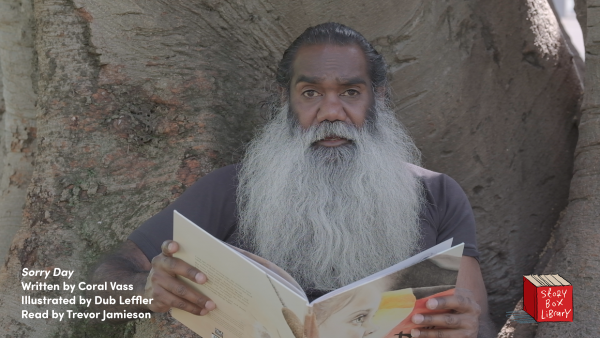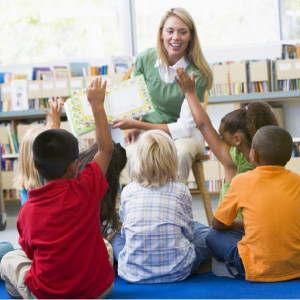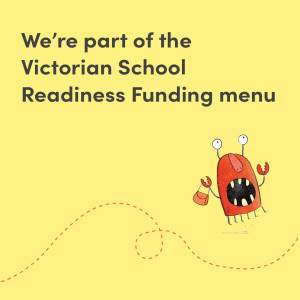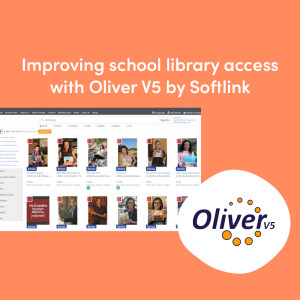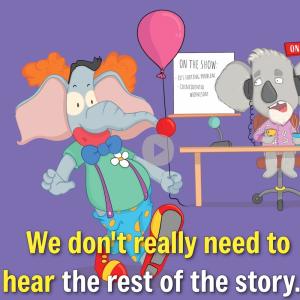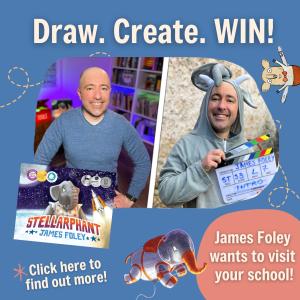Consultancy is the key for non-Indigenous educators
18 Jun 2019
The launch of First Nations' Stories series was an exciting time for our team, but as Story Box Library's Education Project Specialist, responsible for producing educational material, it was also a daunting time.
I desperately wanted our resources to be appropriate, respectful and reflect the importance we placed on celebrating the works of Aboriginal and Torres Strait Islander authors, illustrators and storytellers and on ensuring the beliefs, cultures, experiences and histories of First Nation peoples were represented in our library.
There were many occasions when I suggested to our team that an Aboriginal or Torres Strait Islander educator would be better placed to produce the materials. This feeling of trepidation is not uncommon for non-Indigenous educators who feel unworthy and unqualified to teach such topics and themes. While the fear comes from a good placeout of respect for our First Nations peoplesnot teaching this area due to fear would be a disservice to our First Nations' communities and to all Australian children.
What I have learnt throughout this project is that non-Indigenous educators are NOT expected to have the knowledge. On the contrary, the key to developing learning programs around Aboriginal and Torres Strait Islander Histories and Cultures is consultancy and allowing Australia's First Peoples to contribute to the learnings happening in our classrooms to ensure that an accurate and shared history is formed.
What educators and families find through our First Nations' Stories series is the result of collaboration and reconciliation, with authors and storytellers from various First Nations' language groups who assisted in producing each story segment. Likewise, in producing resources, I have been guided on matters relating to Australia's First Peoples by Lisa Fuller, a Wuilli Wuilli woman and descendant of the Wakka Wakka and Gooreng Gooreng Peoples, and an experienced publishing consultant and freelance editor. On most occasions, our correspondence was professional and related to the content of the resources. On other occasions, Lisa shared with me personal experiences, feelings, grievances and responses to the themes in our stories, helping me to unpack misunderstandings and generalisations I had formed. It has truly been a very rewarding part of my career as an educator.
I do not claim to be an authority in Aboriginal and Torres Strait Islander Histories and Cultures, but I do hope that our new learnings and understandings are reflected in the Classroom Ideas for our First Nations' Stories series, providing further guidance and support to educators in deciding what is relevant and appropriate in this area of study. We acknowledge that there are limitations with our Classroom Ideas, namely that we cannot represent all language groups. For this reason, we stress the importance of localising our resources for your school by connecting with Elders and members of local language groups through local councils or state Aboriginal education consultative committees, and engaging in respectful and active listening with these people when they share stories about their group and the land they belong to.
As educators across Australia prepare for NAIDOC Week, we hope that our stories relating to this year's theme of 'Voice. Treaty. Truth.' can foster greater engagement with the wealth of strong voices and stories across Australia. Some of the stories we think are relevant to this theme are Tea and Sugar Christmas, Once There was a Boy, Sorry Day, Alfred's War, The Shack that Dad Built and Stolen Girl, to be released later this year.
For teachers looking for additional resources, we'd suggest looking at work by the following organisations, working to create a positive and beneficial response to NAIDOC Week.
The Healing Foundation: https://healingfoundation.org.au/schools/
Crackerkjack Education: https://www.crackerjackeducation.com.au/
SBS Learn: https://www.sbs.com.au/learn/naidoc
National NAIDOC Committee: https://www.naidoc.org.au/resources/teaching-guides
The Long Walk Education Program: http://www.thelongwalk.com.au/Programs/Walk-the-Talk
Charles Darwin University's Living Archive of Indigenous Languages: https://livingarchive.cdu.edu.au/sample-classroom-activities/


